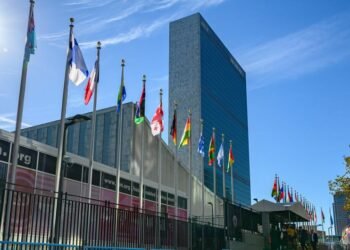Addressing a virtual meeting of ministers organized on 27 October by the Australian government ahead of the OECD’s annual meeting, Deputy Director-General (DDG) of the World Trade Organization (WTO), Yi Xiaozhun, stated that a robust and inclusive economic recovery requires open and predictable international trade supported by a well-functioning trading system.
Deputy Director-General Yi Xiaozhun urged the ministers to step up cooperation at the WTO to lay the foundation for a strong economic recovery from the COVID-19 pandemic.
“A robust and inclusive economic recovery requires open and predictable international trade, supported by a well-functioning trading system”, he said.
The informal session, convened by Australia, looked at two issues: how to narrow differences and move towards an agreement in the WTO fisheries subsidies negotiations, and how the WTO can best contribute to global economic recovery in the wake of the damage caused by the pandemic.
Deputy Director-General Yi noted that the outlook for global trade is a bit brighter than a few months ago. According to him, the extraordinary fiscal and monetary measures implemented by countries have cushioned the fall in demand, forestalled financial market instability, and contributed to an uptick in trade.
According to DDG Yi, WTO economists now estimate that global merchandise trade will shrink by just over 9% this year. This is historically bad, in line with 2009. But it is better than the earlier projections of a decline of 13 to 32%. In the second quarter, the global services trade was down 30% year-on-year.
As the world continues to see the second wave of COVID-19 infections, the short-term risks to economic recovery are obvious.
“The longer-term risk is of a weak, faltering growth trajectory that leaves output well below the pre-pandemic trend — at great cost to the lives of millions.
“Cooperation in trade would help reduce both sets of risks.
‘In efforts to tackle the pandemic, trade has been a key means of access to medical supplies, helping to ease some of the shortages we saw earlier this year. To take one example: trade in personal protective equipment (PPE) was 92% higher in the second quarter compared to the same period in 2019”, DDG Yi said.
He added that the WTO continues to monitor members’ pandemic-related trade policies. Trade-facilitating policies have outnumbered trade-restricting measures by nearly two to one. Many trade restrictions introduced earlier in the crisis have been rolled back.
In the wider economy, trade remains a catalyst for growth and productivity. By the same token, closing markets to trade would amount to an additional — self-inflicted — supply shock.
“Greater cooperation at the WTO can defuse trade tensions and provide greater certainty for international trade. We have heard from Ambassador Wills about the fisheries subsidies negotiations. There is scope for much more. Groups of WTO members are negotiating rules on digital commerce, investment facilitation, and services domestic regulation. Each would help fill gaps in global trade architecture.
“Several members have put forward ideas for making supply chains more resilient, which would reduce incentives to restrict trade in future crises”.





















